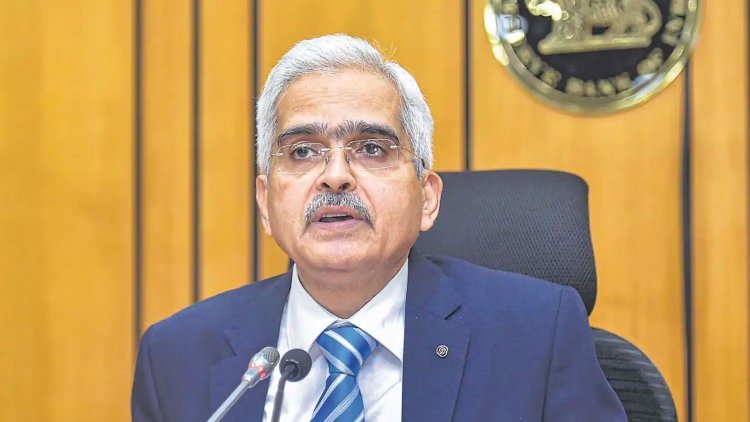Food and energy shortages are a result of the conflict in Europe, according to RBI Governor Shaktikanta Das
When giving the opening talk at the Department of Economic and Policy Research of RBI's annual research conference, Das noted that the COVID-19 pandemic issue provided a chance to investigate and utilise the power of big data while strengthening direct feedback mechanisms.

When the economy was ready to totally normalise despite the third wave of the COVID-19 epidemic, the war in Europe brought with it additional obstacles, and suddenly, the world met a major food and energy crisis, Reserve Bank Governor Shaktikanta Das stated on Saturday.
During his opening remarks at the Department of Economic and Policy Research of RBI's annual research conference, Das said that the COVID-19 pandemic crisis offered a chance to investigate and utilise the power of big data while strengthening direct feedback mechanisms.
The pandemic, he continued, also presented new research questions and analytical challenges for policy-making because it changed the size and nature of the necessary policy stimulus as well as their efficacy.
Data collecting during the pandemic's initial wave and the resulting statistical blip in data, according to the governor of the RBI, constituted the first significant difficulty. Gathering data on sector-level stress became even more crucial for developing focused policy solutions during the second wave, which was more deadly.
"At a time when the economy was about to fully normalise despite the third wave of the pandemic, the European war brought new difficulties. An extreme food crisis and an energy catastrophe appeared out of nowhere.
The fragmentation of the global economy as a result of rapidly shifting geopolitical factors created a new risk and highlighted the need to lessen reliance on any one source for vital supplies "said Das.
Price spikes for commodities caused supply chains to become even more tangled. These factors caused inflation to become more global, and as a result, policymakers were faced with a new set of research questions, including how to comprehend the size and potential persistence of shocks, the channels through which shocks are transmitted, and the efficacy of alternative policy tools.
As nations resorted to trade policy measures (tariff and non-tariff) and fiscal measures (price freezes, tax cuts, and subsidies to the disadvantaged), he said, focused research attention was also needed to determine the suitability of such measures in the Indian context.
He claims that since March 2020, three significant shocks—the COVID-19 epidemic, the European war, and the severe tightening of monetary policy—have presented fundamentally distinct obstacles for economic study, he said.
The three shocks' aftereffects are still being felt, thus constant watchfulness is necessary. Therefore, he advised, the RBI's research department must continue to be ready to respond to these various possibilities as it has in the past.
At a time when the economy was about to fully normalise despite the third wave of the pandemic, the European war brought new difficulties. He added that the world had suddenly experienced acute food and energy crises.
He believed that a new risk had emerged in the form of the global economy becoming fragmented due to rapidly shifting geopolitical factors, which highlighted the need to lessen reliance on any one source for vital supplies.
Research departments are thus empowered to act as the workhorse and as the think tank for ensuring continuous supply of reliable processed information, analytical research, and fresh ideas, he said. Central banks have a culture of diligently building synergies between research and policy making.




 admin
admin 




















